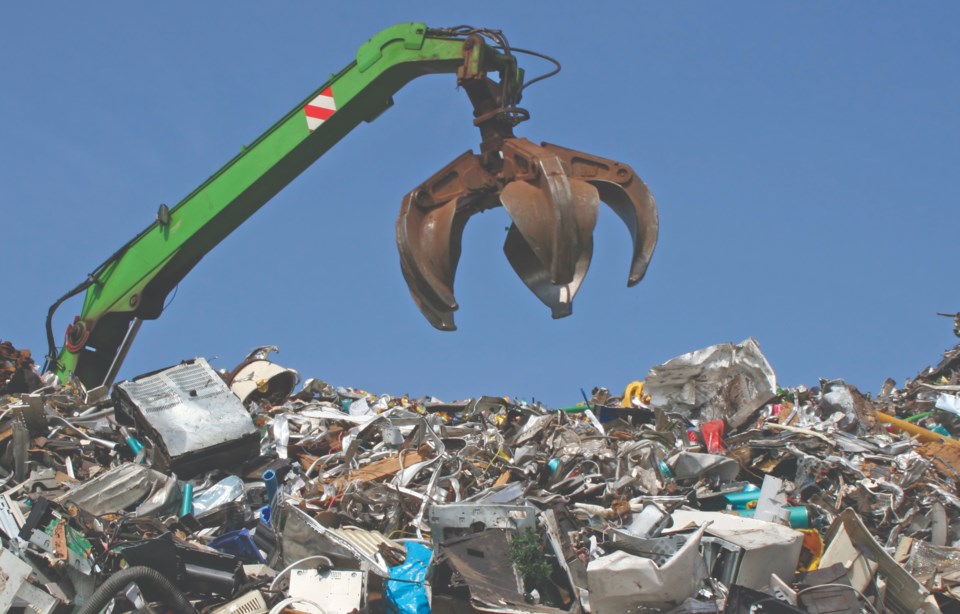It’s no surprise that the pandemic has had an effect on what we buy and how we go about it. It ignited sales of some products and flat-lined others; it made online shopping an everyday affair for many who’d never even dabbled. There was also an initial surge in people buying in a more socially responsible way, only to fall right back to 2019 levels of I-don’t-give-a-shit-where-it-comes-from-just-get-me-my-thingism. What happened?
When the pandemic started, we were literally drowning in stories of brands giving back—distilleries shifting gears to produce hand sanitizer, car manufacturers assembling respirators, and everyone pumping out medical gowns and other supplies for frontline healthcare workers. Of course, we all thought the pandemic was a short-term crisis, that we’d just hunker down, have each other’s backs, keep calm and carry on until life returned to “normal.” Cue summer, and most of the feel-good headlines transformed to divisive debates on masks, health orders, and testing. Quarantines were joined by curfews and protests in response to yet another brutal police murder. All amidst one of the most polarizing presidential elections in U.S. history, one that unequivocally showed what many already knew to be true: science-denying conservatives were only in it for themselves and Shareodin—the god of greed and corporatocracy.
The brutality of the pandemic, whine of political propaganda, and endless sewer-hole of social media left us with more questions than answers. People struggled with what to believe and who to trust; patience was lost with health recommendations and lives placed on perpetual hold. Sick of operating in survival mode, the predictable end result was compassion fatigue. This fatigue also extended to the environment.
A February 2021 survey of 4,000 adults in the U.K. showed that 52 per cent of people declared themselves more environmentally conscious than prior to the pandemic; almost half claimed “a lot more” so. This wasn’t, however, mirrored by action; the survey found people were taking considerably fewer steps towards sustainable consumption than in December 2019, when a similar survey was conducted. Where 37 per cent reported eating local and seasonal produce to reduce food-transport CO2 in 2019, the figure was down to 25 per cent by February 2021. Comparable figures for the number of households claiming reductions in meat consumption were 31 per cent vs. 21 per cent. Veganism fell from five per cent to four per cent. And there was a huge drop in the rate of those claiming to be engaged in recycling over the period: from 73 per cent to 51 per cent. And while 61 per cent of people claimed to avoid single-use plastics pre-pandemic, this had tumbled to just 36 per cent in February.
And so, it seems, we’re back on the consumption train with little care to what we run over. This is indeed unfortunate given early pandemic-induced awareness that consumerism was at the root of most of the world’s problems, from environmental degradation, the biodiversity crisis and pandemics, to the plastics catastrophe, climate change and inequality. Is there a way out of this? Would we care if there was one?
Enter J.B. MacKinnon (The 100-Mile Diet, The Once and Future World) and his new book The Day the World Stops Shopping, in which the prize-winning B.C. author considers what would happen to our economy, environment, products and persons if we simply got off the consumption train. “We can’t stop shopping. And yet we must. This is the consumer dilemma,” he begins.
As the book’s promotion puts it, the planet says we consume too much: in North America, we burn the Earth’s resources five times faster than they can regenerate. And despite efforts at green consumption—recycling, increased energy efficiency, solar power—we’ve yet to see a decline in global carbon emissions. The economy counters that we must always consume more, because, as per the pandemic, even the slightest drop in spending leads to widespread unemployment and bankruptcy. Addressing this paradox head-on, MacKinnon investigates whether there’s a way to reduce consumption to Earth-saving levels without triggering total economic collapse.
One big takeaway is that changes can—and must—be made in the system at large to encourage companies to make longer-lasting products, and to build a part of the economy dedicated to repairing and up-cycling products. France, for instance, recently said you cannot deliberately plan for your product to fail (e.g., think of the planned obsolescence of cellphones). Europe is also talking about lifespan labelling for products, and tax deductions for repair. Other solutions exist in sustainable fashion: one company can now dissolve cotton, reconstitute it as cellulose and remake that into fabric; it can also dissolve polyester, turn it into plastic pellets, then re-spin these into more polyester—classic circular economy stuff.
During an online Vancouver Public Library conversation between MacKinnon and Tzeporah Berman of Stand.org, a viewer questioned society’s focus on GDP growth as our standard economic metric. “Trump is the clearest example yet of what a total focus on economic growth can result in,” said MacKinnon of the administration’s willingness to scrap literally every environmental and climate regulation “to jack up GDP so the economy looked great at the end of an election cycle—but all governments are participating in that now.”
Clearly governments won’t lead us away from the sacred feedlot of consumerism after the pandemic, leaving it up to companies to instil sustainability in their business and marketing models. Though it’s anathema to talk about it in corporate circles, they know, as we do, that buying fewer things is the greenest thing you can do.
Leslie Anthony is a science/environment writer and author who holds a doctorate in connecting the dots.




